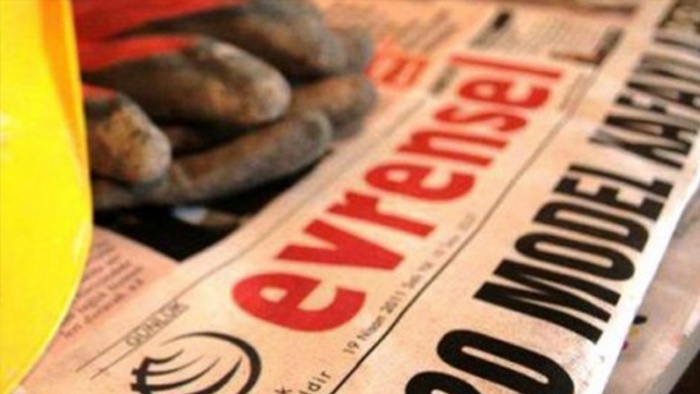Turkish authorities have permanently canceled the leftist Evrensel daily’s license to publish public ads, a significant source of revenue for newspapers, on the grounds of bulk buying, local media reported on Monday, citing a written statement by the daily.
Turkey’s Press Advertising Agency (BİK), the state body responsible for regulating publicly funded advertisements in the media which imposed the ban, said in a notice sent to Evrensel that the move was made on the grounds that readers bought more than one newspaper from the dealers in some provinces.
Since September 2019, Evrensel had already been banned from publishing ads in line with another BİK decision, also on the grounds of bulk buying.
According to Evrensel, the fact that 13 different provincial and district organizations of the leftist Labor Party (EMEP) collectively bought 650 newspapers in total and that those sent to dealers in İstanbul, Ankara, İzmir and Kocaeli provinces were bought by a few people were counted as grounds for the cancellation of the daily’s advertising license.
Fatih Polat, editor-in-chief of Evrensel, said BİK’s decision was a “political operation aimed at silencing” them.
The Broadcasting and Printer Workers Union (DİSK BASIN-İŞ) also condemned the agency’s decision, saying in a tweet that BİK was “a tool of economic control for the press” and a “club” of the Justice and Development Party (AKP) government, calling for its closure.
Basın İlan Kurumu basına yönelik ekonomik denetim aracıdır. İktidarın sopası BİK kapatılmalıdır.
Herkesi haber alma hakkına sonuna kadar sahip çıkmaya ve iktidarın ekonomik cenderesine karşı dayanışmaya çağırıyoruz pic.twitter.com/oWAahoUon8
— DİSK Basın-İş (@Disk_Basin_is) August 22, 2022
Earlier in August Turkey’s Constitutional Court ruled that advertising bans imposed on BirGün, Sözcü, Cumhuriyet and Evrensel, all newspapers critical of the ruling AKP, due to 13 columns and news pieces they had published, violated their rights to freedom of speech and freedom of the press.
The court ordered new legal proceedings for annulment of the decisions that caused the violation and the government to pay each of the newspapers TL 10,000 ($557) in damages.
Noting that BİK issued a total of 39 days of advertising bans in 2018, 143 days in 2019 and 572 days in 2020, the court also said in its decision that the authority given to the institution had gone beyond the purpose of monitoring press ethics and had turned into “a tool for punishment” that can have a deterrent effect on some members of the press, a situation that causes a “systematic problem.”
Last month BİK changed the Press Ethics Code, adding to it vague and abstract wording that is feared to contribute to the increasing media censorship in the country. Changes to the principles in Article 49 of Law No. 195 on the Establishment of the Press Advertising Agency came 28 years after they were first set in 1994.
BİK was first established in 1961. In 2013 its structure was changed to enable it to impose advertising bans for violations of its regulations. It has a general assembly comprising members appointed by the government, the media industry and civil society.
According to Reporters Without Borders (RSF), 90 percent of the national media in Turkey, which was ranked 149th among 180 countries in the RSF’s 2022 World Press Freedom Index, is owned by pro-government businessmen and toe the official line.



